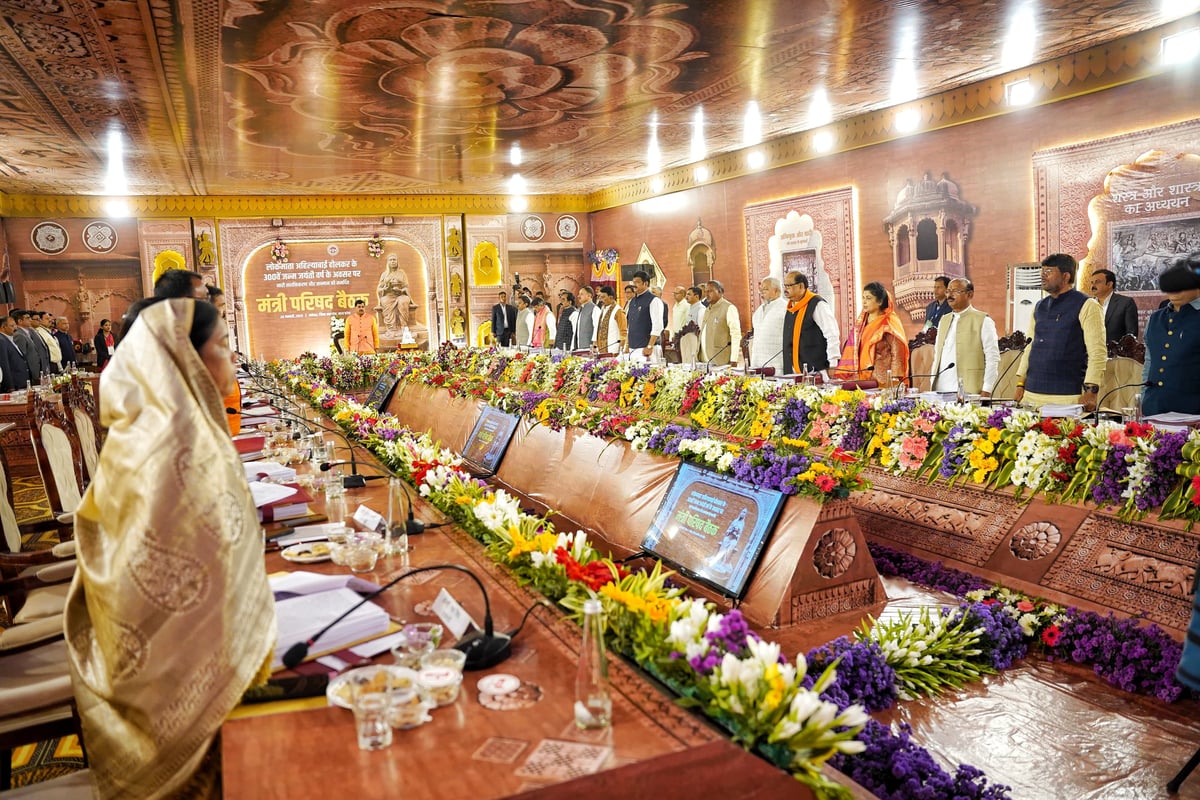Madhya Pradesh Cabinet Meets At Maheshwar: Liquor Ban In 17 Religious Cities | X / Mohan Yadav
Bhopal (Madhya Pradesh): The state Cabinet has approved a proposal to implement liquor ban in 17 religious cities of the state. The decision, taken on Friday during a cabinet meeting held in Maheshwar, will shut all liquor shops and bars in these cities.
A new Excise Policy for 2025-26 was also okayed. The 17 cities where the ban will be enforced include Ujjain Municipal Corporation, Omkareshwar Nagar Panchayat, Maheshwar Nagar Panchayat, Mandleshwar Nagar Panchayat, Orchha Nagar Panchayat, Maihar Nagar Panchayat, Chitrakoot Nagar Panchayat, Datia Nagar Panchayat, Panna Nagar Panchayat, Mandla Nagar Palika, Multai Nagar Palika, Mandsaur Nagar Palika, Amarkantak Nagar Panchayat, Salkanpur Gram Panchayat, and several other gram panchayats such as Barmankalan, Linga, Barmankhurd, Kundalpur and Bandakpur.
Moreover, the new excise policy will see introduction of a new series of bars to better regulate and control alcohol consumption in the state.
Nod to excise policy for 2025-26
The Cabinet has approved the Excise Policy for 2025-26, aiming to streamline the state’s liquor regulation and control. A significant 20 percent hike in the value of liquor shops has been implemented for the current year, with reserve rates to be fixed for 2025-26.
Renewal permissions will now require applications for 80 percent or more of the shop value. To prevent forgery, only e-challans and e-bank guarantees will be recognised for earnest money, eliminating simple bank guarantees and Fixed Deposit Receipts (FDR).
Liquor shop allocations will follow a renovation, lottery, and e-tender process. In an effort to discourage strong liquor consumption among youth, the new policy introduces a series of bars offering only beer, wine, and Ready to Drink (RTD) beverages.
To tackle illicit liquor, a new range of country-made liquor with a lower alcohol content will be launched in 180 ml and 90 ml sizes, including tetra packs for the 180 ml variant.
Technological measures will be enforced with POS machines at all liquor shops for billing and supply tracking. Liquor supply systems for foreign liquor warehouses will be automated, and duty rates will follow an EDP-based Ad Valorem system.
Ministers get transfer power
The Cabinet also approved the much-anticipated transfer policy for state-level officers and employees. The policy, however, will not apply to officials posted in districts.
Transfers will be granted by ministers under limited circumstances, including vacant positions, serious illness, judicial orders, or serious complaints against an official. In special cases, ministers can also approve transfers. Following the approval, the CM Secretariat will issue formal orders, fulfilling long-standing demands from ministers for more control over transfers.
